MSRZG2UL - Cortex-A55/Cortex-M33
RZ/G2UL for low-end HMI Applications

MSRZG2UL SoMs are starting at EUR 31,00 net.
The MSRZG2UL is the System-In-Package based on Renesas RZ/G2UL Family architecture offering high-performance Cortex-A55/Cortex-M33 core. The MSRZG2UL combines compact design and a wide range of functions, bringing low power consumption, thermal efficiency and low-cost to embedded systems. The MSRZG2UL was designed to meet the specifications of the OSM-standard as much as possible.
The RZ/G2UL general-purpose microprocessor units (MPUs) are built around a Cortex-A55/Cortex-M33 CPU core. Peripheral functions include support for multiple interfaces, such as two USB 2.0 channels, Camera interface (MIPI-CSI), Gigabit Ethernet channel, two SD channels, and CAN channel, as well as Display interface (Parallerl-IF), making it ideal for applications such as entry-class industrial gateway control and embedded devices with Simple GUI capabilities.
In addition to a wide range of services, the MSRZG2UL module also offers new functionalities in terms of flexibility and processing. The System-in-Package can be individually adapted to the respective customer requirements due to four different form factors.
Features
- Single Cortex-A55, up to 1GHz
- Cortex-M33, up to 200MHz
- 512MB – 4GB DDR4 RAM
- 4GB eMMC NAND Flash
- dual 10/100/1000MBit Ethernet
- USB2.0 Host/OTG
- 2x CAN-FD
- UART, I2C, SPI
- ADC
- parallel display interface
- MIPI-CSI camera interface
- designed for close compliance to the SGET OSM standard
- size S, 30x30mm²
- pin count: 332
- 0°C..+70°C commercial temperature range
- -40°C..+85°C industrial temperature range
Block Diagram
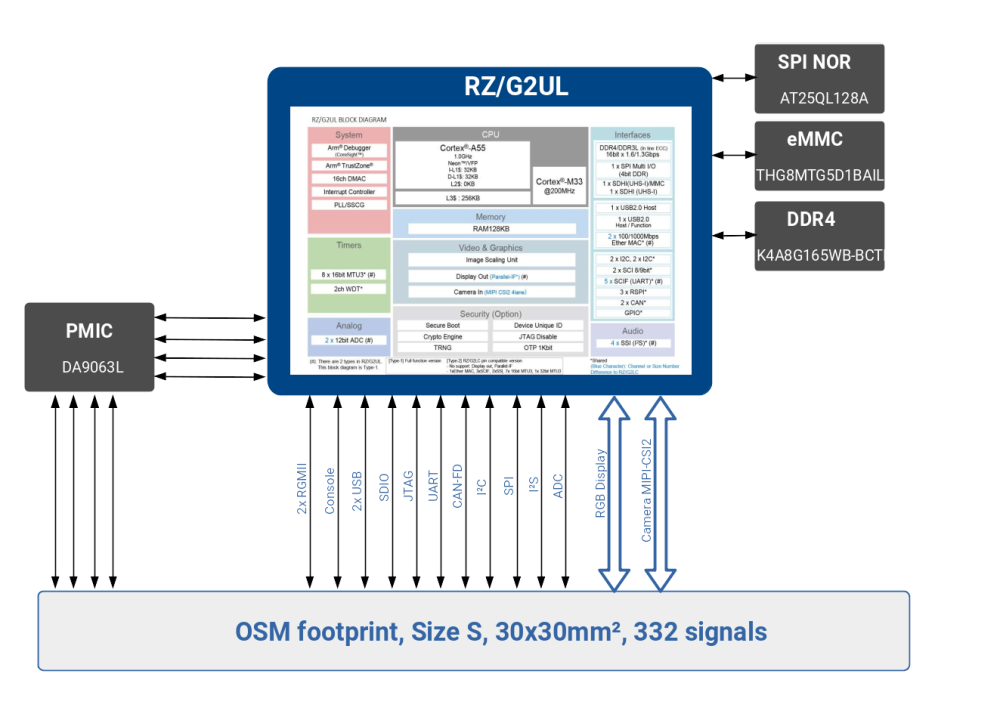
Pictures
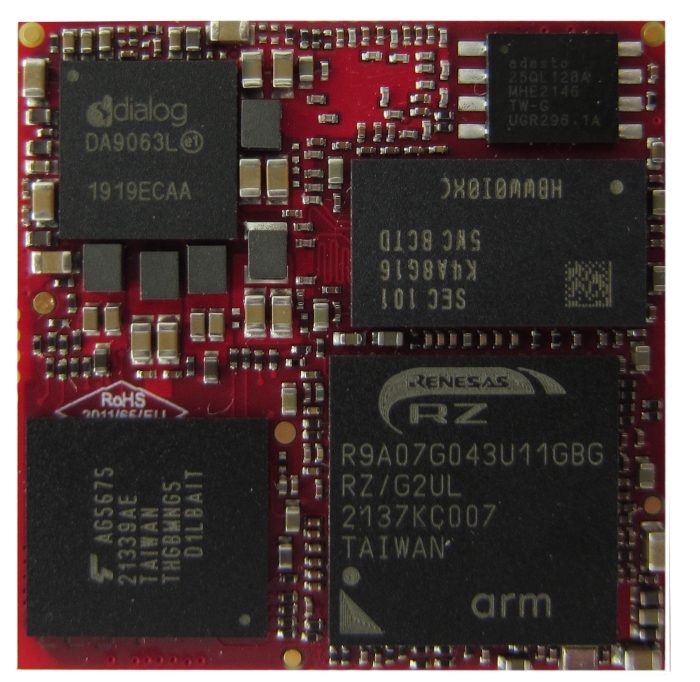
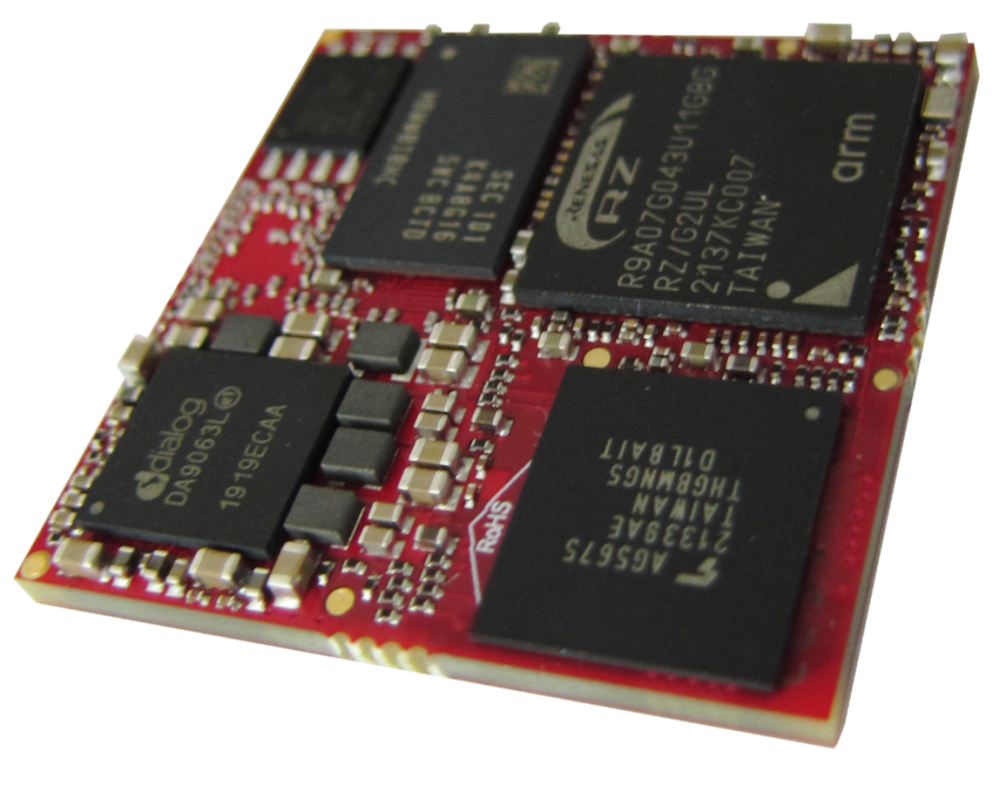
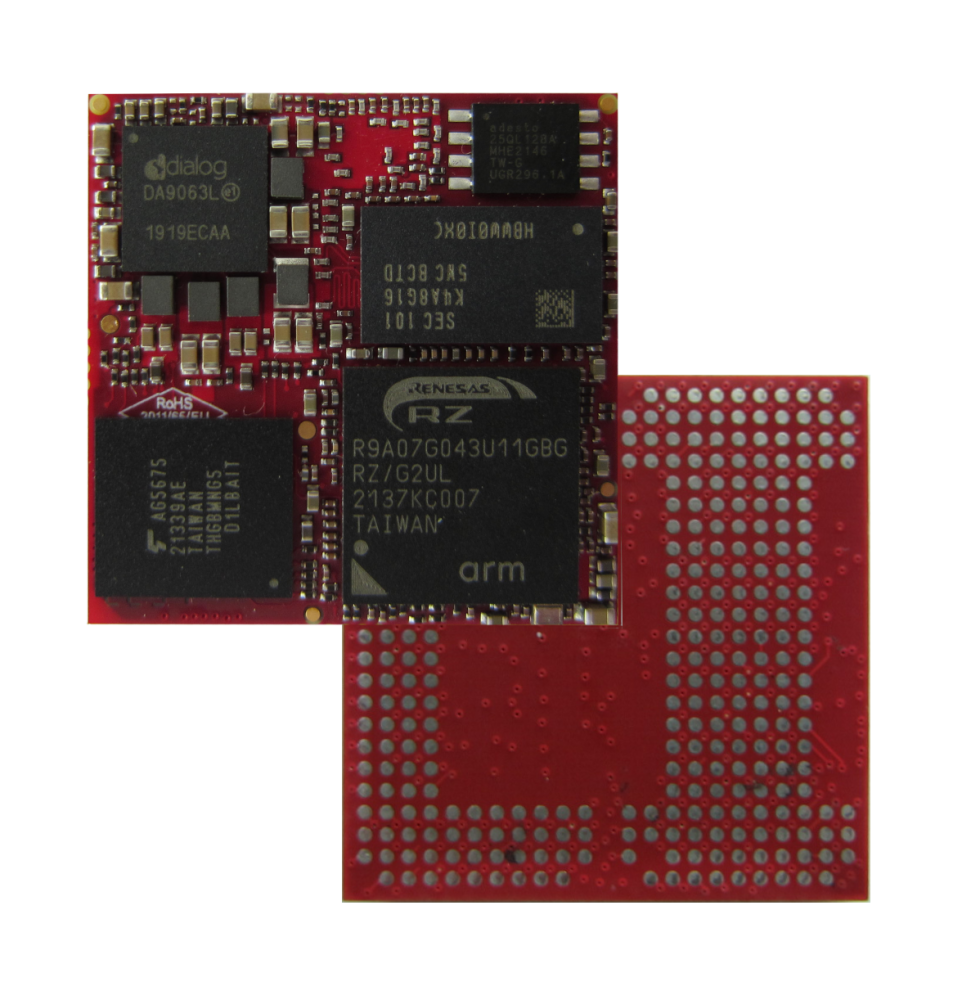
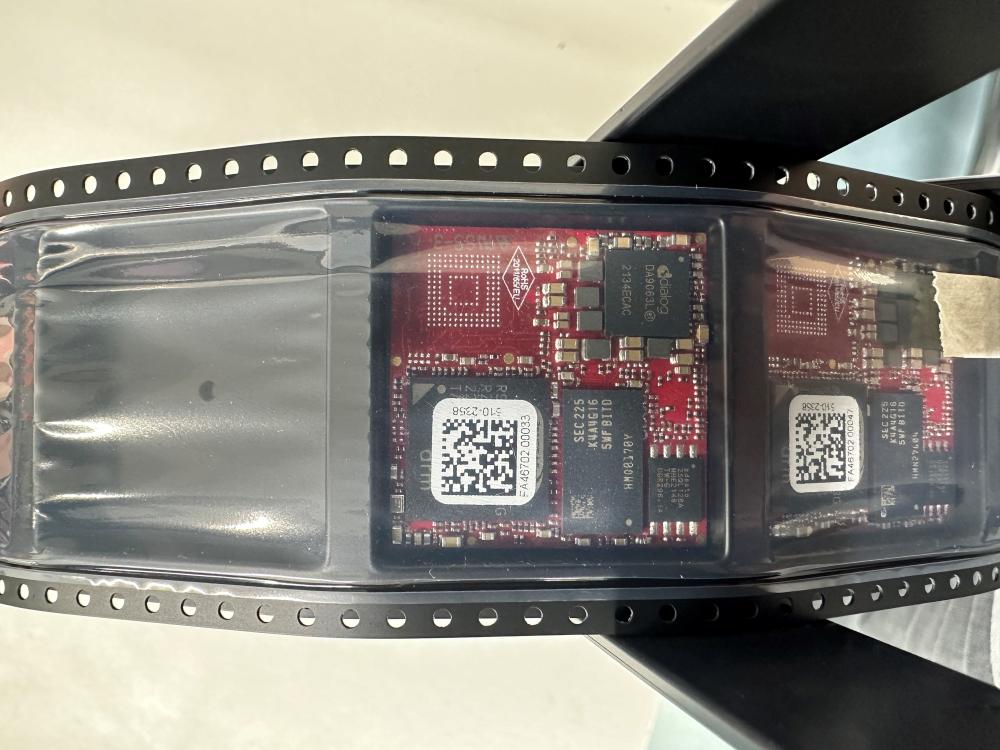
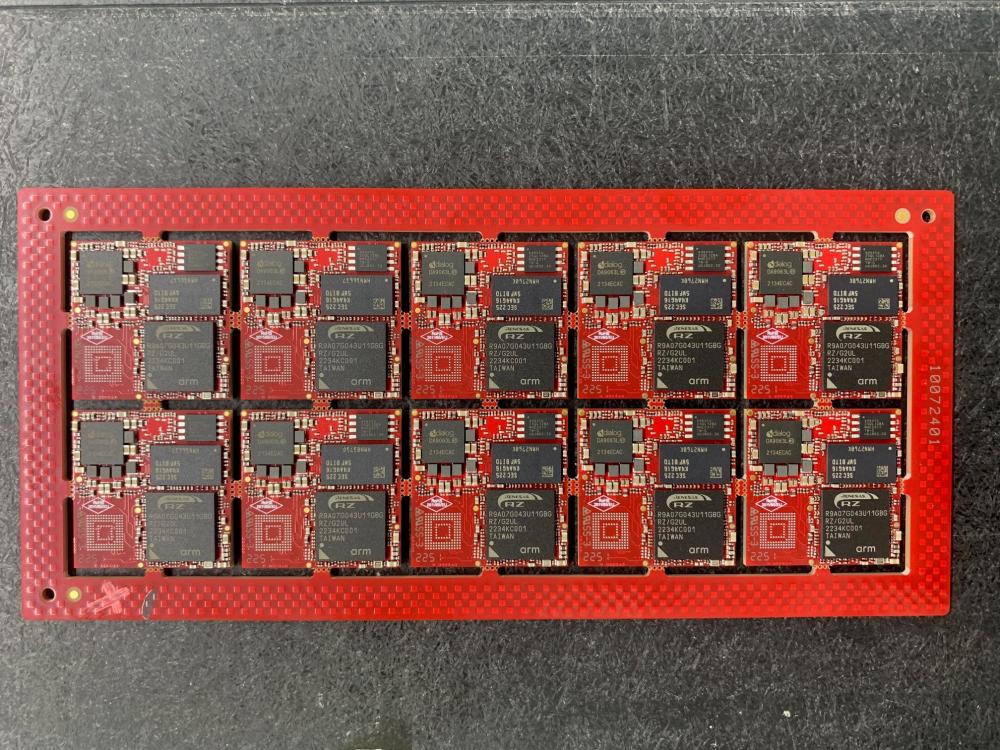
Order Codes
MSRZG2UL-A0A
- Renesas RZ/G2UL R9A07G043U11GBG
- 512MB DDR4 RAM
- no eMMC NAND Flash
- 128MBit SPI-NOR
- -25°...+85°C
MSRZG2UL-BAA
- Renesas RZ/G2UL R9A07G043U11GBG
- 1GB DDR4 RAM
- 4GB eMMC
- 128MBit SPI-NOR
- -25°...+85°C
OSM Standard |
 |
The idea of all Open Standard Modules (OSM) is to create a new, future proof and versatile standard for small-size, low-cost embedded computer modules, combining the following key characteristics:
- different architectures available on the same footprint, scalability in function and performance
- four different mechanical sizes and pin counts, downwards compatible
- pre-defined soft- and hardware interfaces
- specification and design guide publicly available
- design support for baseboard integration, driver development and mass production by ARIES Embedded
- directly assembly to the baseboard without connectors using LGA (Land Grid Array) technology
- completely machine processible during soldering, assembly and testing
The Open Standard Module specification allows developing, producing and distributing embedded modules for the most popular MCU32, ARM and RSICV architectures. For a growing number of IoT applications this standard helps to combine the advantages of modular embedded computing with increasing requirements regarding costs, space and interfaces.